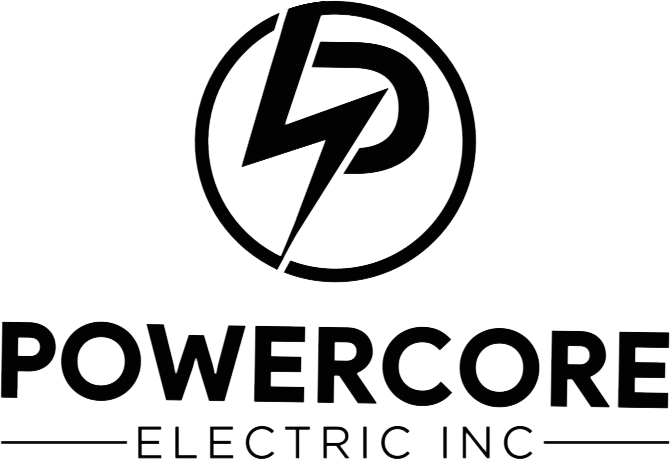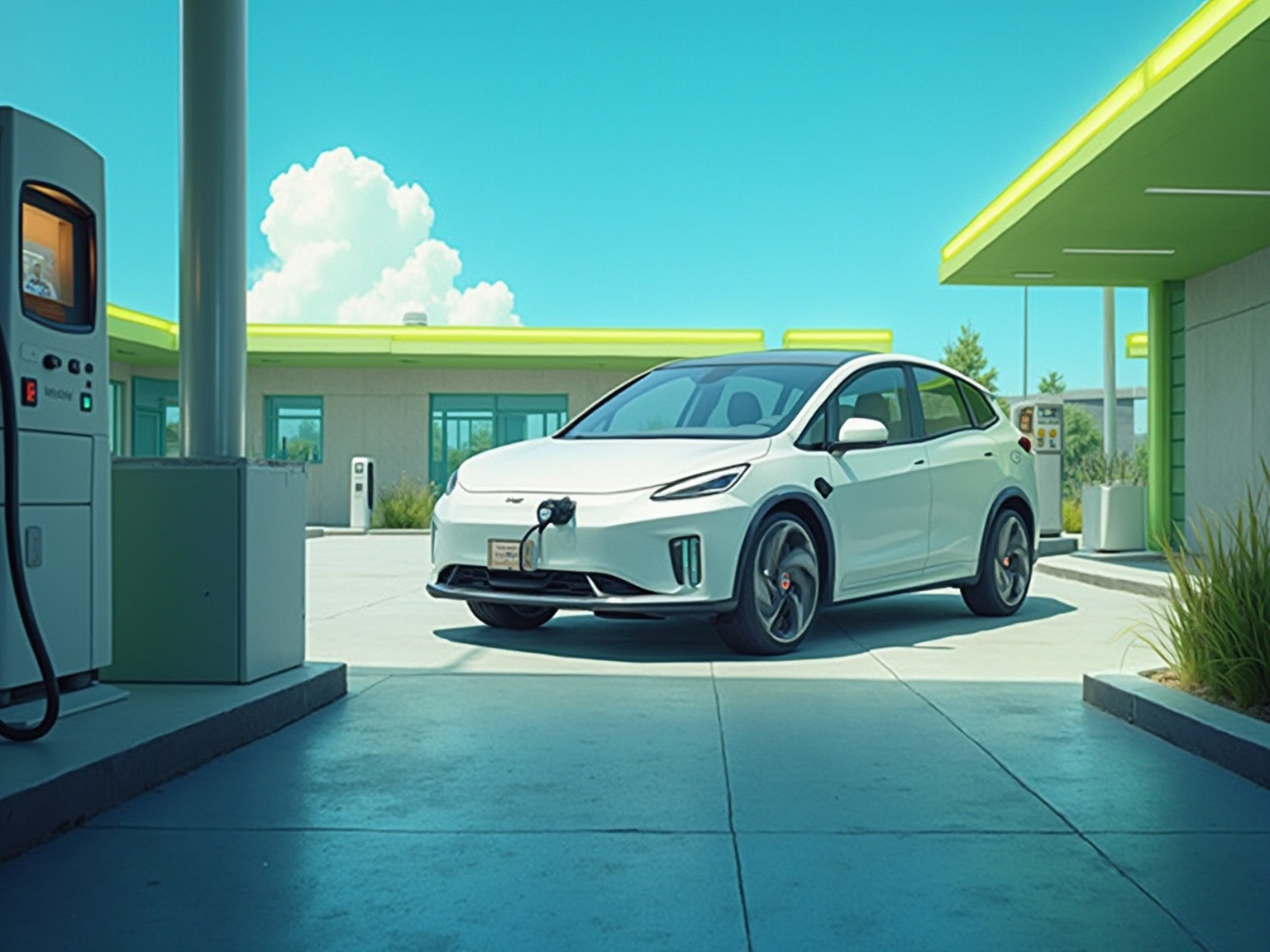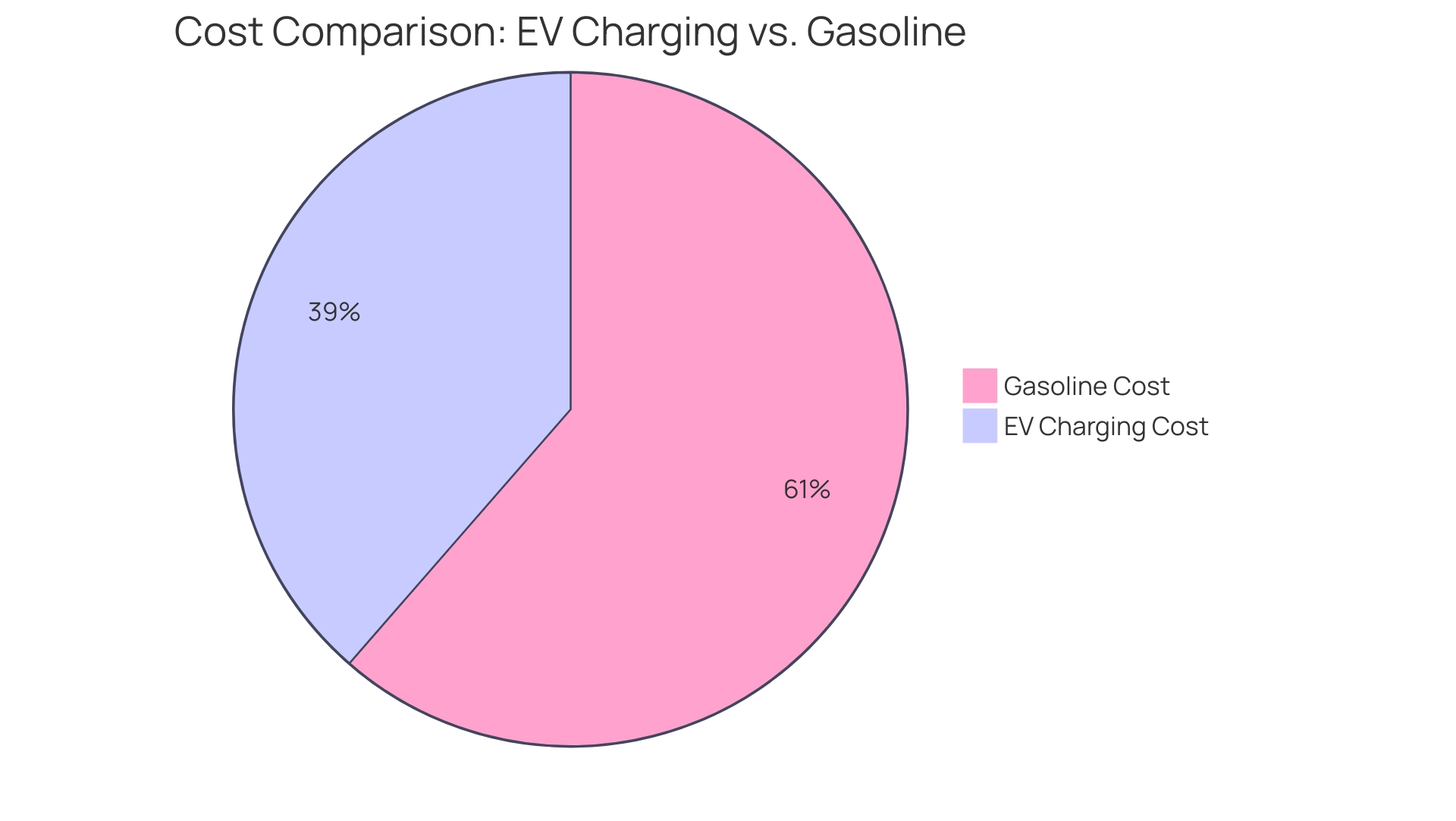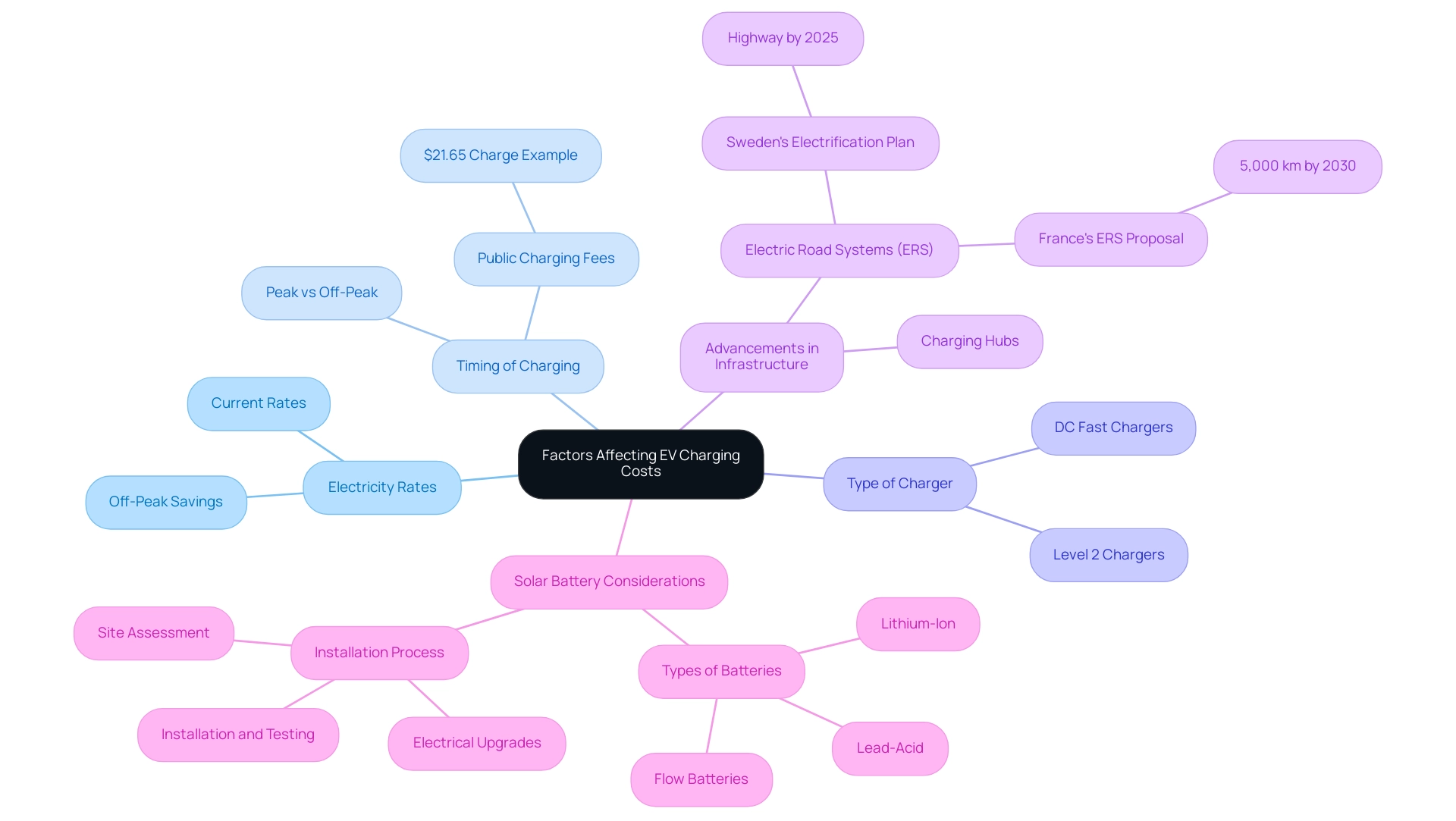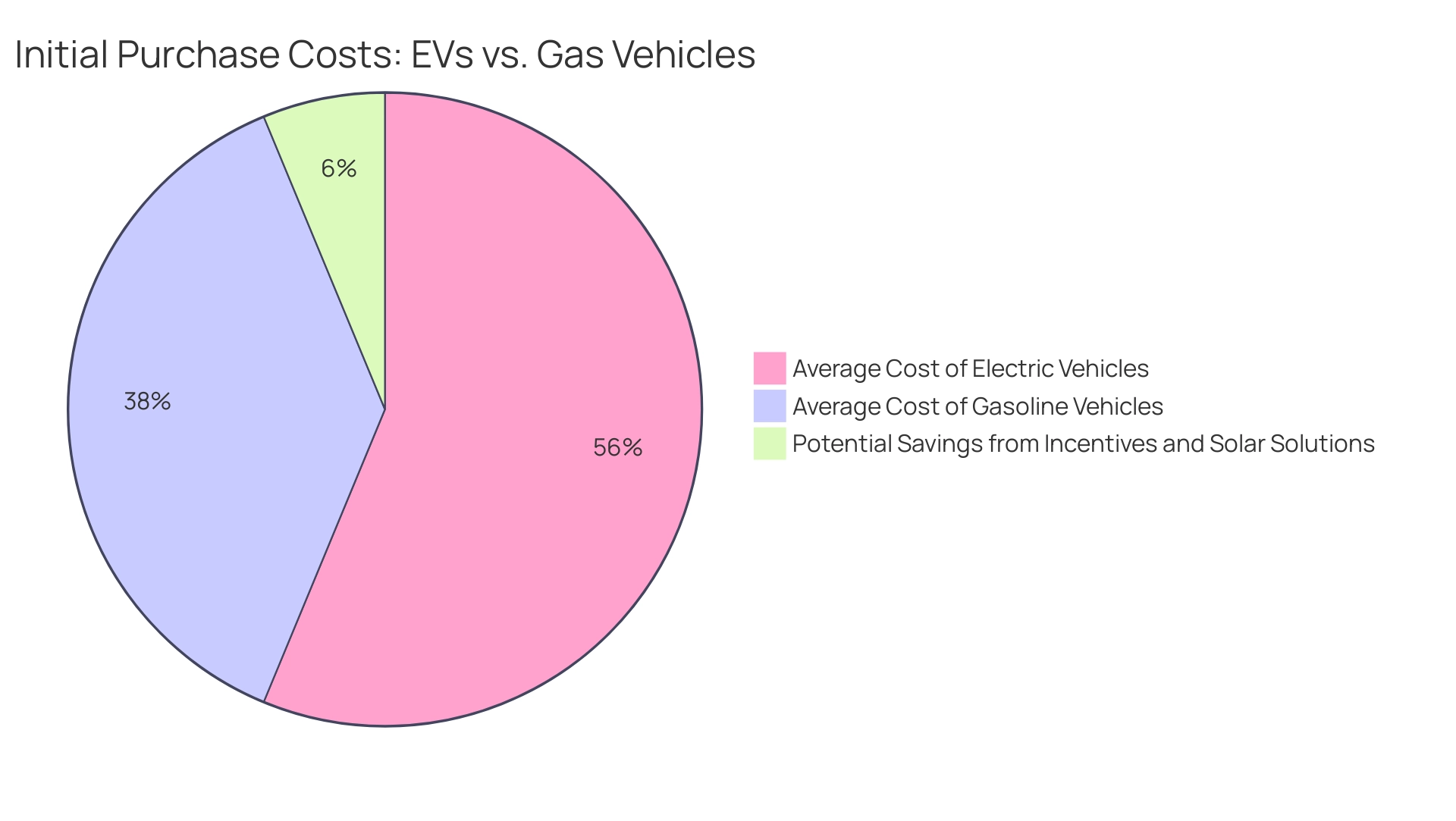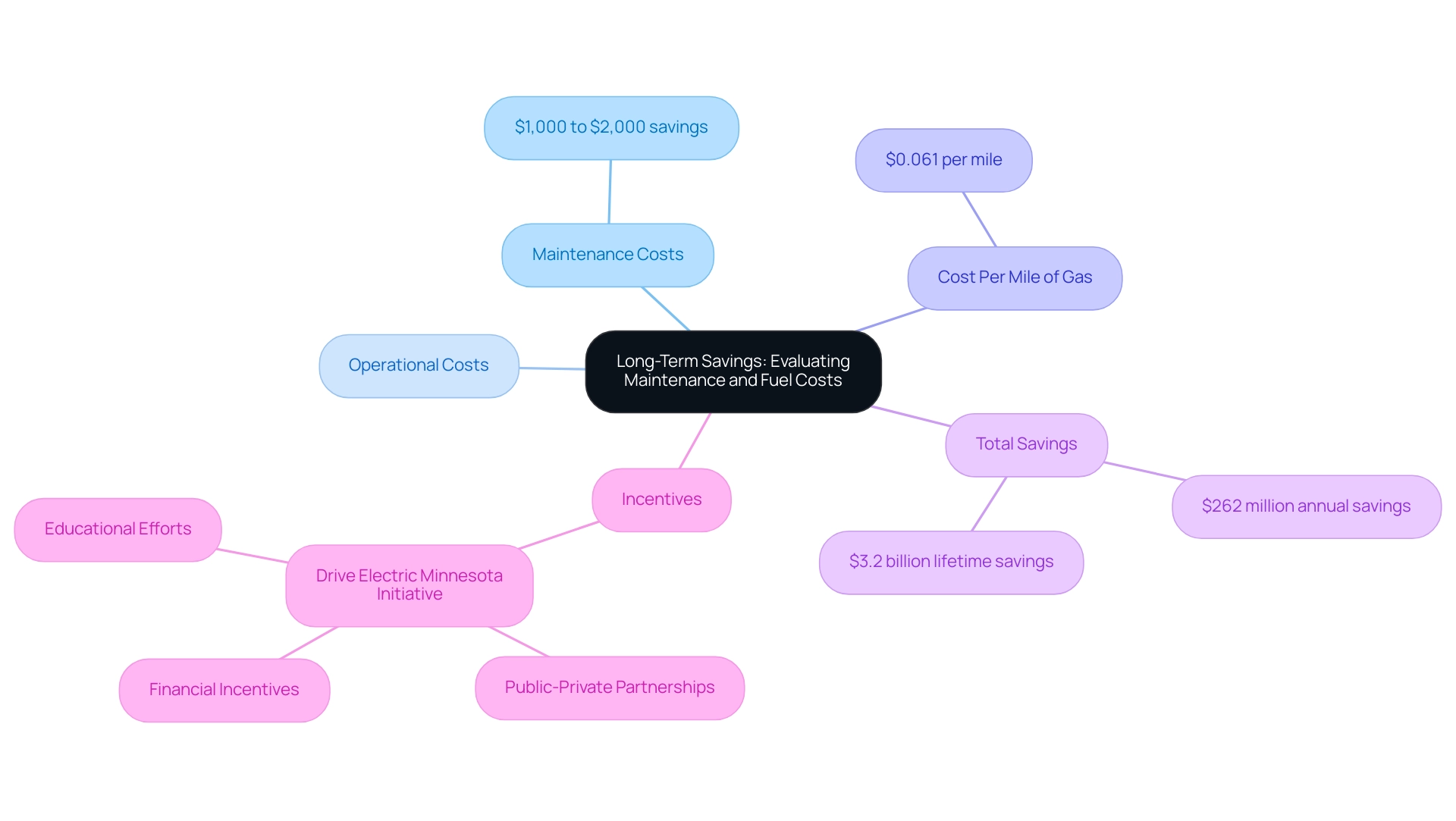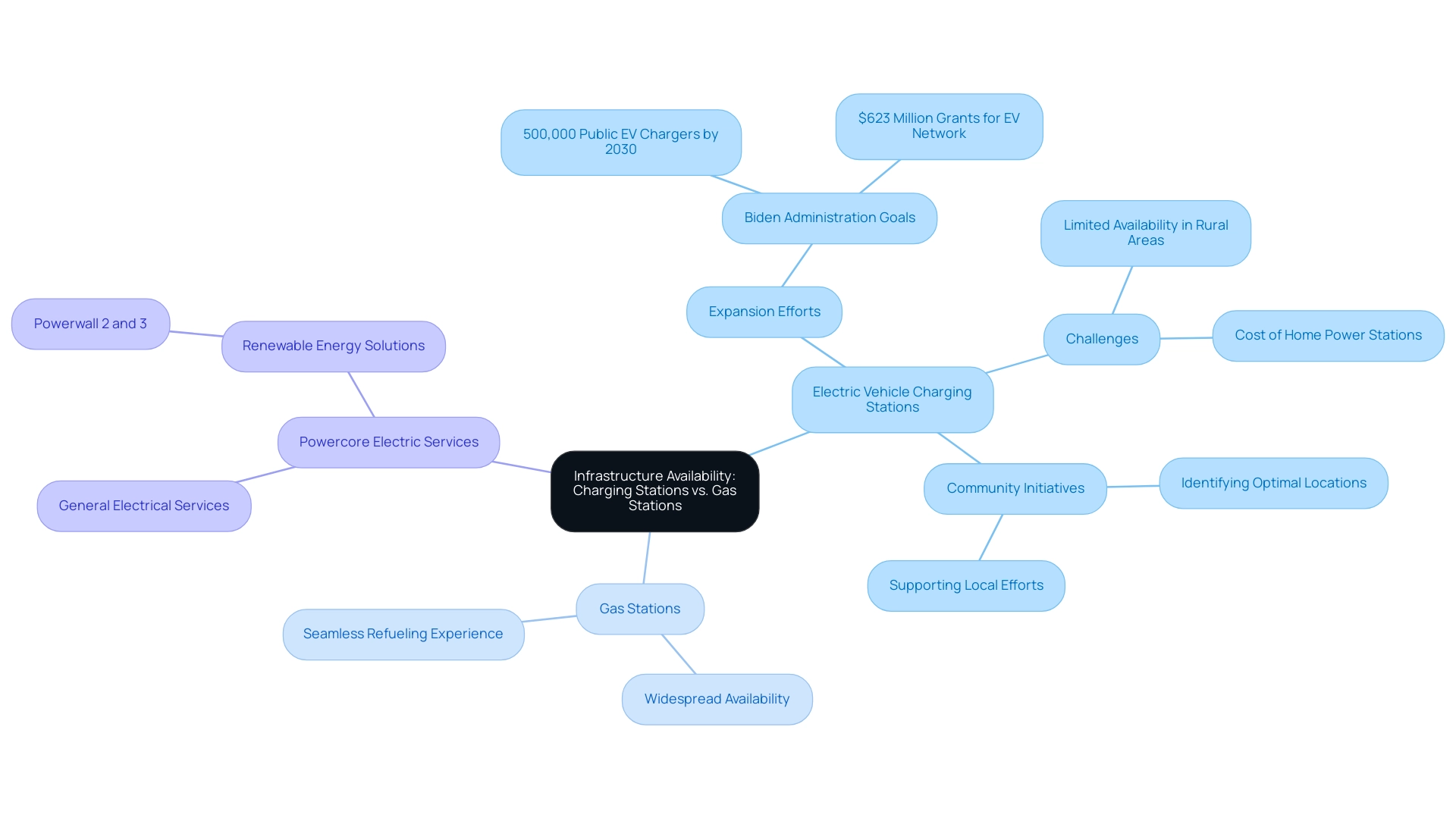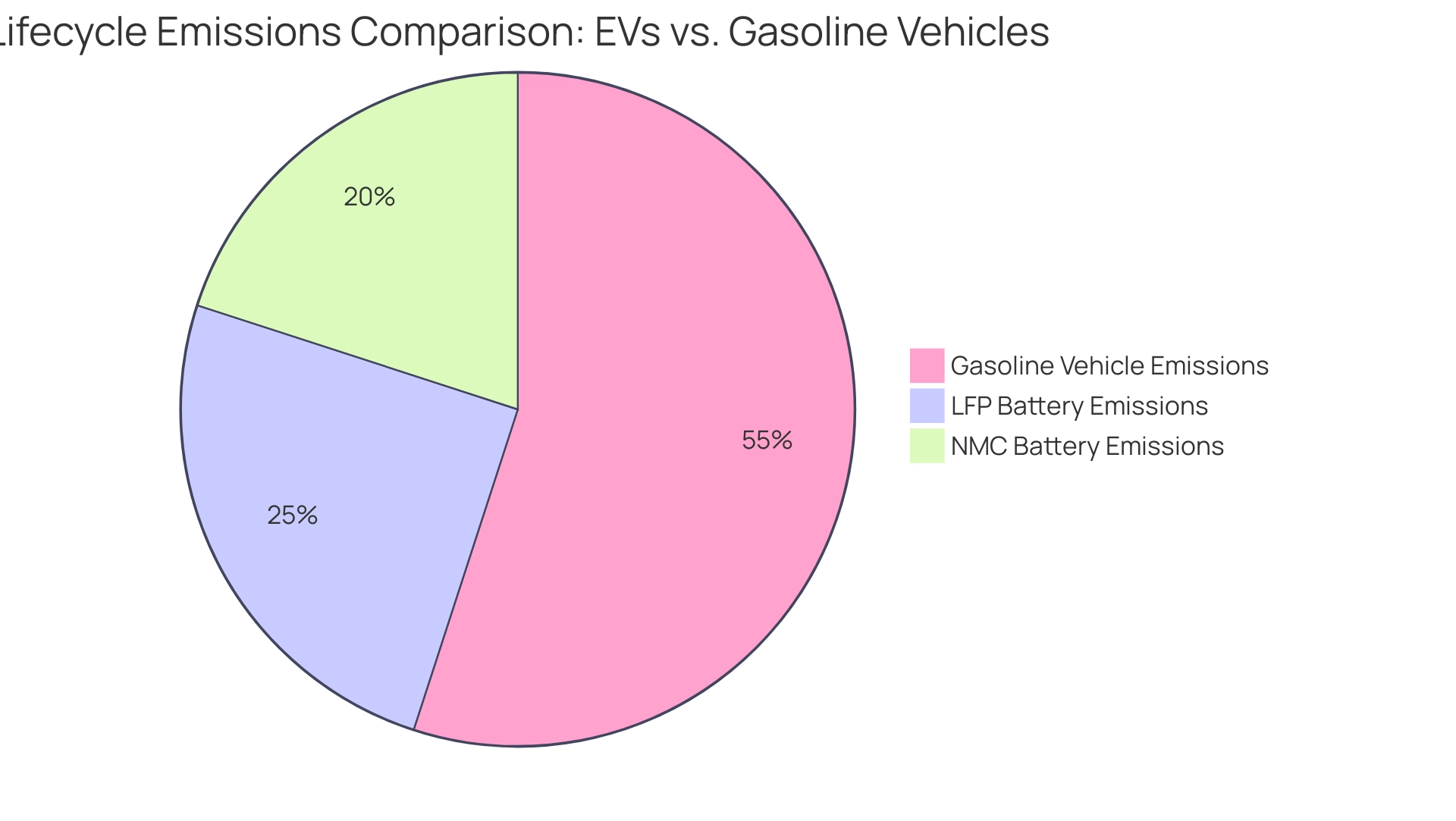Overview
The article compares the costs associated with charging electric vehicles (EVs) and gasoline vehicles, highlighting that EV charging is generally more economical, especially as gasoline prices rise. This is supported by data showing that charging an EV can cost between $5 to $15 for a full charge, significantly lower than the costs incurred by gasoline vehicles, along with potential savings from various incentives and the reduced maintenance expenses associated with EV ownership.
Introduction
As the automotive landscape shifts towards sustainability, electric vehicles (EVs) are emerging as a compelling alternative to traditional gasoline-powered cars. With the rising costs of gasoline and increasing environmental concerns, many consumers are exploring the financial and ecological benefits of making the switch.
This article delves into various facets of EV ownership, including:
- The cost dynamics of charging versus fueling
- The long-term savings associated with maintenance and operational expenses
- The evolving charging infrastructure
- The impact of incentives and rebates
- The environmental implications of transitioning to electric mobility
By understanding these key elements, prospective buyers can make informed decisions that align with their financial goals and eco-conscious values.
Understanding the Cost Dynamics: EV Charging vs. Gasoline
The expense of powering an electric car (EV) presents a compelling monetary advantage when examining the ev charging cost vs gas, especially during periods of fluctuating gasoline prices. On average, powering an EV ranges from $0.10 to $0.30 per kWh, amounting to approximately $5 to $15 for a full charge, depending on the vehicle’s battery capacity. In contrast, the ev charging cost vs gas shows that gasoline prices in the U.S. in 2024 typically fluctuate between $3 and $5 per gallon.
This stark difference illustrates that, for an average driving distance of 1,250 miles, an EV that consumes 3 kWh per mile incurs monthly costs of about $70.72, showcasing the ev charging cost vs gas as significantly cheaper than gasoline-powered alternatives. Moreover, as gasoline prices continue to rise, the comparison of EV charging cost vs gas highlights the savings associated with EV power supply. Goodwin emphasizes:
- “Taking advantage of off-peak charging at home,
- capitalizing on free EV charging at work or while shopping,
- and maximizing local incentives are great starting points.”
This strategic approach can further enhance the cost-effectiveness of owning an electric vehicle. When considering installation expenses, a Level 2 charger can be priced around $2,000, which includes installation. However, potential federal tax credits covering 30% of installation expenses up to $1,000 can significantly reduce this upfront outlay.
Investing in a Level 2 charger not only enhances efficiency but also increases value to a home, making it a wise choice for eco-conscious homeowners. Furthermore, it is crucial to examine how differing electricity rates, particularly in regions with renewable energy incentives, can influence overall expenses. For those concerned about current gasoline prices, subscribing to AAA gas price alerts can keep consumers informed about fluctuations, adding a timely aspect to the discussion.
Therefore, a comprehensive examination of the ev charging cost vs gas offers valuable viewpoints for buyers contemplating a transition to battery-powered transportation.
Factors Affecting EV Charging Costs
Multiple factors greatly affect the ev charging cost vs gas when powering electric cars (EVs). Key among these are electricity rates, the timing of power sessions, and the vehicle’s energy efficiency. Charging during off-peak hours can lead to substantial savings, as many utility companies offer reduced rates during these times.
For example, a review highlighted a public fee of $21.65, which demonstrates the significance of timing in expense management. Moreover, the type of charger used plays a crucial role in determining expenses. Level 2 chargers, often used in home environments, achieve an effective balance between speed and cost, while DC fast chargers, though more expensive, offer the advantage of quick power delivery.
It is also significant that a third (33%) of respondents from the capital reported owning an electric car, highlighting the growing adoption of EVs and its relevance to costs related to energy. Furthermore, advancements in Electric Road Systems (ERS) are poised to revolutionize the landscape of EV power delivery. Countries like Sweden, which plans to electrify a highway by 2025, and France, proposing nearly 5,000 km of ERS by 2030, are leading the way in this technology.
These developments could significantly affect expenses related to power replenishment by offering more efficient options. Understanding these variables—including the latest trends in electricity rates, the advantages of off-peak power usage, and the evolving infrastructure—will be essential for EV owners to compare the ev charging cost vs gas. Furthermore, as homeowners evaluate the economic advantages of solar battery systems, combining them with EV power solutions will improve energy independence.
When selecting a solar battery, it’s crucial to evaluate types such as lead-acid, lithium-ion, and flow batteries, focusing on their capacities, lifespans, and efficiencies to ensure they meet household energy demands. Moreover, understanding the comprehensive installation process for EV charging stations—encompassing site assessment, electrical upgrades, installation, and testing—will help homeowners maximize their investments. By leveraging available incentives and exploring leading solar battery products, eco-conscious homeowners can ensure efficient and cost-effective energy management as we move into 2024.
Initial Purchase Costs: EVs vs. Gas Vehicles
Electric automobiles (EVs) generally present a higher initial purchase price than their gasoline counterparts, with the average cost of an EV ranging from $30,000 to $60,000, depending on the model and features. In comparison, gasoline cars typically fall within a price range of $20,000 to $40,000 for similar models. However, this upfront investment in EVs can be mitigated through various incentives and tax credits, which are vital in making these modes of transport more financially appealing.
As emphasized by Stephanie Valdez Streaty, Director of Industry Insights for Cox Automotive, ‘The market is changing, and as demand rises, we can anticipate a reduction in costs, making battery-powered transportation more attainable for a wider audience.’ This evolution is highlighted by the statistic that used EVs maintained a 1.7% market share in September, indicating a growing interest in these modes of transportation. Additionally, the recent updates to electric vehicle tax credits, effective July 5, 2024, further enhance the financial feasibility of purchasing an EV.
These changes require sellers to furnish a Clean Vehicle Seller Report within three days of purchase and outline specific eligibility criteria for used EV tax credits. Furthermore, for eco-conscious homeowners, the integration of solar energy solutions for charging EVs can lead to significant long-term savings and sustainability. Installing a Tesla Level 2 home charger usually requires an expenditure ranging from $1,000 to $2,000, based on installation complexity and local electrical work requirements.
Potential buyers are also encouraged to explore solar-powered heating solutions, which can range from $3,000 to $7,000, depending on system size and installation. Assessing personal driving needs, budget, and available incentives is crucial, especially when considering the EV charging cost vs gas related to these installations. As the EV market continues to mature, buyers will find an increasing array of options that offer not only environmental benefits but also long-term financial savings.
Long-Term Savings: Evaluating Maintenance and Fuel Costs
Electric automobiles (EVs) offer significant advantages in maintenance and operational costs when evaluating EV charging cost vs gas. With fewer moving parts and no need for oil changes, EVs generally require less upkeep. Research shows that throughout the lifespan of an electric car, owners can save between $1,000 to $2,000 in maintenance expenses.
In comparison, the average expense per mile for gas-powered transports is $0.061, which emphasizes the financial advantages of transitioning to an EV. This reduction becomes even more impactful when considering the EV charging cost vs gas; charging an EV instead of purchasing gasoline can lead to thousands of dollars in savings, particularly in an era of rising fuel prices. Recent findings indicate that consumers who switched to battery-powered cars achieved a remarkable total savings of around $262 million each year in transportation expenses, as reported by the U.S. Department of Treasury and IRS, with forecasts predicting this amount could rise to $3.2 billion throughout the lifespan of these automobiles.
Furthermore, numerous states are improving the financial attractiveness of EVs through tax incentives and rebates, adding to the long-term savings linked to owning a battery-powered mode of transport. A prime example of this shift is illustrated by the Drive Electric Minnesota Initiative, which underscores the collaborative efforts of automakers, utilities, and government entities to promote EV adoption. This initiative not only promotes the growth of EV adoption through public-private partnerships but also offers financial incentives and educational efforts, making these automobiles an economically sound choice for the eco-conscious homeowner.
Infrastructure Availability: Charging Stations vs. Gas Stations
The infrastructure supporting electric vehicle (EV) refueling is undergoing significant expansion, with city and state governments actively investing in public refueling stations. Community initiatives play a crucial role in enhancing EV station density, as local efforts can help identify optimal locations for new stations. For instance, Nevada boasts registration rates for EVs that are 49% higher than the national average, yet it faces a challenge with nearly 20% fewer EV power ports per road mile, particularly evident in rural areas where availability remains limited.
In contrast, gasoline stations are widespread, offering a seamless refueling experience for conventional automobile owners. While EV owners have the option to install home power stations to offset these limitations, the initial investment involved may raise concerns about the EV charging cost vs gas for some potential buyers. However, as the infrastructure for electric vehicles evolves, with initiatives like the Biden Administration’s commitment to creating 500,000 public EV chargers by 2030 and the recent announcement of $623 million in grants to develop a national EV network, the convenience of owning an electric vehicle is poised for substantial improvement.
Powercore Electric Inc. assists this transition by providing reliable general electrical services, including solar panels, battery backups, and EV power stations, thus improving access to clean transportation and sustainability solutions for eco-conscious homeowners. Additionally, compared to competitors, Powercore Electric distinguishes itself by providing comprehensive services that integrate renewable energy solutions, such as the Powerwall 2 and Powerwall 3, which are essential for optimizing home energy use alongside EV charging. As the landscape of electric transportation ownership changes, integrating electric cars with renewable energy will become increasingly essential for sustainable living.
Environmental Considerations: The Green Impact of EVs vs. Gasoline
Electric vehicles (EVs) are lauded for producing zero tailpipe emissions, significantly reducing air pollution and greenhouse gas emissions compared to gasoline vehicles. Achieving net-zero emissions is a critical step towards a sustainable future, and EVs play a vital role in this transition. However, it is crucial to consider the environmental impact of EVs regarding the electricity sources utilized for recharging.
In areas such as Los Angeles, where solar-powered EV refueling stations are becoming more prevalent, the ecological benefits of EVs can be amplified. Current reports indicate that electricity-related emissions account for approximately:
- 20% of the lifecycle emissions for NMC batteries
- 25% for LFP batteries
This underscores the importance of the energy mix. With initiatives promoting solar energy utilization, such as government programs incentivizing solar panel installations on homes, eco-conscious homeowners can maximize their sustainability efforts.
For instance, Tesla home chargers provide a convenient solution for EV owners looking to harness solar energy directly at home. As we look ahead to 2024, the integration of renewable energy sources into the grid is expected to further enhance the sustainability of EVs, aligning perfectly with the aspirations of homeowners aiming to minimize their carbon footprint. Compared to gasoline engines, which have a consistently higher emissions profile throughout their lifecycle, EVs present a more sustainable option—especially as renewable energy becomes more prevalent.
Moreover, when evaluating expenses, the EV charging cost vs gas shows that charging an EV can be considerably less expensive than gasoline, particularly when utilizing solar energy, which can lower overall energy outlays. Additionally, insights into solar battery choices and eco-friendly cleaning options can ensure efficient energy storage and maintenance, making the transition to greener energy sources more accessible. Austin Kampen’s perspective reflects a common sentiment:
It wouldn’t really matter to us if it was green or not, because it seems kind of out of reach for us.
Yet, with progressive policy initiatives in the EU and Brazil focused on promoting lower lifecycle emissions and establishing recycling requirements for batteries, the path toward greater ecological benefits in the EV sector is becoming increasingly viable. These developments not only encourage the creation of modes of transport with lower emissions but also contribute to a more sustainable future.
Incentives and Rebates: Financial Support for EV Buyers
Electric car buyers have access to a variety of incentives and rebates that can substantially lower their total cost of ownership, making the integration of home Tesla chargers and solar-powered heating solutions particularly appealing for eco-conscious homeowners. Among the most significant are federal tax credits, which can reach up to $7,500 for qualifying purchases, making EVs more financially viable for many consumers. Additionally, the used auto credit provides 30% off the price of the car, up to $4,000, for cars priced under $25,000, benefiting lower- and middle-income shoppers.
Numerous states are also introducing their own incentives for 2024, including:
- Cash rebates
- Tax exemptions
- Benefits such as access to carpool lanes
These incentives enhance the attractiveness of vehicles powered by electricity. Moreover, local utility companies frequently provide discounts on EV charging, offering additional savings. For instance, a Colorado woman successfully purchased a used EV for under $700, illustrating how financial incentives can make sustainable mobility accessible.
Alex Lawrence, an EV dealer, emphasizes the importance of these programs, stating,
It allows these customers to buy cars that they wouldn’t be able to buy, because they don’t have $4,000.
This blend of federal, state, and local financial assistance not only mitigates the higher initial expenses linked to battery-powered cars but also promotes a wider shift to sustainable transportation, especially as the need for affordable pre-owned EVs continues to surpass availability. Home Tesla chargers generally vary from $400 to $700, which, when combined with solar-powered heating solutions, can further enhance savings by lowering electricity expenses.
By coupling these incentives with solar-powered technologies, homeowners can maximize their savings and energy efficiency while lowering their overall cost of ownership for electric vehicles.
Conclusion
Electric vehicles (EVs) are revolutionizing the automotive landscape by offering both financial and environmental benefits. Charging an EV typically costs between $5 and $15 for a full charge, which is significantly more economical compared to rising gasoline prices. Additionally, the lower maintenance needs of EVs can save owners between $1,000 and $2,000 over the vehicle’s lifespan.
Incentives and rebates further enhance the financial appeal of EV ownership, making them more accessible to a broader audience. As the charging infrastructure continues to expand through government initiatives, concerns about charging availability are being alleviated, increasing the convenience of owning an EV.
The environmental impact of electric vehicles is also noteworthy, as they produce zero tailpipe emissions, contributing to reduced air pollution and a lower carbon footprint. The integration of renewable energy sources into the charging grid amplifies these ecological advantages, making EVs an even more attractive option for eco-conscious consumers.
In summary, the shift to electric vehicles represents a vital step towards a sustainable future. With compelling financial incentives, lower operational costs, and positive environmental effects, the case for EV ownership is stronger than ever. Embracing electric mobility is essential for individuals and communities committed to fostering a greener planet.
